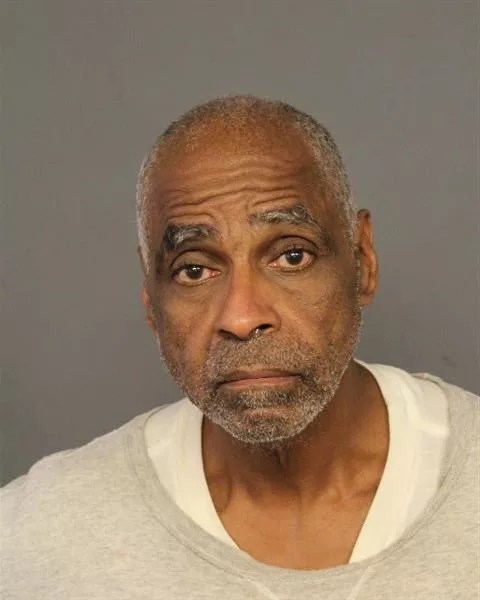
Unsplash/Kelly Sikkema

Audio By Carbonatix
Nearly thirty years after Terri Turachak was murdered in her Denver home, Ricky Dawson will go to trial for her death.
Turachak, 35, was found dead in her apartment in 1996, killed by strangulation and blunt-force trauma to her head, according to the Denver District Attorney’s Office. The investigation into her murder yielded little results for years; until 2004, when the city’s cold case division matched Dawson’s DNA to the crime scene.
Dawson’s DNA was in the system because he was in prison for a 2001 sexual assault and homicide in Florida. However, he wasn’t charged with Turachak’s murder until February 2023 – three months before he was set to be released for the Florida homicide. Dawson’s attorney, Nathan Hall, recently tried to dismiss the Denver case because of that eighteen-year gap.
“Mr. Dawon’s constitutional right to speedy process and fundamental fairness have been violated due to the state’s purposeful choice to delay prosecution,” Hall said during a court hearing on January 10. “The defense has been given an impossible task.”
Hall argued that the state intentionally delayed pursuing charges against Dawson until he was about to be released to hurt the defense’s case, making it more difficult to investigate other suspects, find witnesses to testify or conduct a relevant competency screening.
“What, if any, items of evidentiary value could we find given the eighteen-year delay?” Hall asked.
Detective John McGrail, the lead detective on Turachak’s murder case since December 2018, defended the decision to wait to pursue charges against Dawson.

Ricky Dawson faces one count of first-degree murder after deliberation and one count of first-degree murder predicate attempted sexual assault.
Denver District Attorney’s Office
After the initial saliva DNA hit in 2004, McGrail said law enforcement did several rounds of additional testing on sperm, pubic hair, DNA on the victim’s jeans, wads of hair on the floor and blood on the wall. McGrail argued that one test in particular – on hair found on the victim’s leg that belonged to Dawson – proves Dawson made contact with the victim during or after her murder because the hair would have fallen off if the victim had gotten up.
“Just because there’s a [DNA] hit, doesn’t mean that the person is guilty. You need to corroborate the evidence,” McGrail said during the hearing. “The defense that I could easily see was ‘consensual partner.’ The argument would be, ‘They had sex, that’s all the DNA tells us.’ I need to know further.”
According to McGrail, technological advancements allowed them to do further testing that wasn’t available in 1996 when the murder occurred or in 2004 when Dawson was first identified as a suspect. In addition, they faced delays due to the COVID-19 pandemic, grant funding issues and other murder cases, he said. Detectives with the Denver Cold Case Project must pause investigations for months or years to focus on active cases, also, he explained.
McGrail said he wanted to investigate even further before asking the district attorney’s office to file charges against Dawson, but he felt rushed to take action before Dawson was released from prison for the Florida murder.
“We had to do something to protect the community,” McGrail said. “In January of 2023, I knew that Mr. Dawson was going to be released and we still had additional testing [to do], but my fear was…if I continue to wait for additional testing and he got out, I was in fear for the community’s safety.”
Judge A. Bruce Jones denied the request to dismiss the case on January 27.
Jones ruled that while there was likely probable cause to charge Dawson in 2004, that does not require the state to pursue criminal charges they don’t believe they can prove in court beyond a reasonable doubt. He also noted that Hall failed to provide specific evidence proving the defense’s case was harmed by the delay.
“You saying it don’t make it so,” Jones said to Hall during the January 10 hearing. “I have not heard one iota of prejudice that arises from the delay. …It would be contrary to the interest of justice for the people to act on probable cause when the people do not believe that they can prove a case beyond a reasonable doubt.”
Dawson, 64, is next due in court for a motions hearing on April 4. He remains in custody in Denver, facing one count of first-degree murder after deliberation and one count of first-degree murder predicate attempted sexual assault.
Dawson’s DNA was also linked to a 2000 homicide in Seattle, Washington, in addition to the murders in Colorado and Florida, according to arrest documents.
A fourth murder case arose just this month: On January 15, California police issued an arrest warrant for Dawson for the 1992 murder of 45-year-old Nancy Hernandez in San Francisco. That cold case was reopened in November 2023, again identifying Dawson using DNA testing.
Like Turachak, the other murder victims were strangled, beaten and sexually assaulted, according to investigators.
Dawson pleaded guilty to second-degree murder in the Florida case and was sentenced to 25 years in prison. He was extradited from Florida to Colorado in February 2023. He will be sent to California after his Denver trial concludes.